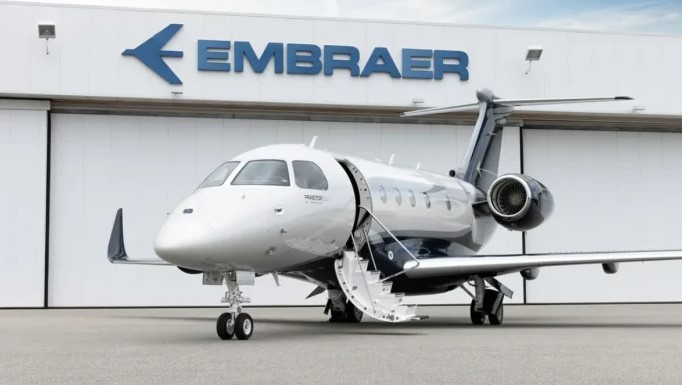At the prestigious Marrakech Airshow, Morocco and Embraer announced a significant partnership aimed at elevating Morocco’s aeronautics sector through a series of joint projects. This new memorandum of understanding spans commercial aviation, defense, and urban air mobility, and marks a major step toward closer economic and technological ties between Morocco and Brazil, two dynamic players in the global South.
The agreement, signed by key Moroccan leaders including Industry and Trade Minister Ryad Mezzour, Investment Minister Delegate Karim Zidane, and Ali Seddiki, Director General of Morocco’s Investment and Export Development Agency, alongside Embraer’s CEO Arjan Meijer, is set to unlock extensive opportunities in the aviation sector. This cooperation seeks to leverage Morocco’s growing aerospace ecosystem by fostering an integrated supply chain, creating local jobs, and fueling technological innovation within the country.
The collaborative effort between Morocco and Embraer covers a broad array of initiatives, including developing a robust Moroccan ecosystem for sourcing and manufacturing. Additionally, the agreement includes advanced stages for skill-building, maintenance, repair, and overhaul (MRO) operations, as well as specialized training to enhance workforce capabilities. The partnership’s economic potential is substantial, with projects estimated to yield $300 million and generate 300 jobs by 2030, and up to $1 billion in value with 1,000 new jobs by 2035.
Reflecting on the significance of this agreement, Minister Mezzour highlighted, “Today’s historic partnership with Embraer demonstrates the strength of Morocco’s aerospace sector and positions us as a key player in the global aviation industry. This collaboration is not only a milestone for our aeronautics sector but also accelerates our ambitions for industry excellence, attracting strategic investments from global leaders.”
Morocco’s aeronautics sector, which has seen rapid growth and technological advancement, stands to benefit greatly from Embraer’s commitment to enhancing local skills, with a particular emphasis on education and workforce development. Arjan Meijer, CEO of Embraer Commercial Aviation, emphasized the shared vision: “This partnership offers a unique opportunity for Embraer to build a long-term, robust relationship with Morocco’s vibrant aerospace sector. Together, we’re committed to growing the industry and maximizing its potential for both countries.”
An important element of this partnership focuses on Morocco’s defense capabilities. Embraer Defense and Security, led by CEO Bosco da Costa Junior, expressed a commitment to collaborating with Morocco’s Royal Air Forces. The Brazilian aerospace giant intends to promote the C-390 Millennium, a highly versatile tactical airlifter known for its efficiency and reliability. Embraer is offering comprehensive support, including training, maintenance, and logistics, positioning the C-390 as a potential choice for Morocco’s future tactical transport needs. This move aligns Morocco with a growing community of international C-390 operators who value the aircraft’s high performance and operational readiness.
Sustainability is also at the forefront of this agreement. Morocco and Embraer are exploring joint ventures in green technology, including sustainable aviation fuels and decarbonization strategies. These initiatives underscore Morocco’s ambition to become a global leader in clean aviation solutions, reinforcing its commitment to environmental stewardship and sustainable growth within the aeronautics industry.
This partnership promises to drive Morocco’s aerospace sector forward, enabling the country to capitalize on its strategic position and skilled workforce to attract further investment. Embraer’s entry into Morocco will also stimulate innovation across fields such as urban air mobility and sustainable aviation, positioning the country as a vital hub for cutting-edge aerospace advancements.
By strengthening their ties through this bold partnership, Morocco and Brazil are not only advancing their aerospace sectors but are also paving the way for broader economic cooperation. This collaboration signals a promising future for both countries, with mutual benefits that extend far beyond the aerospace industry.





